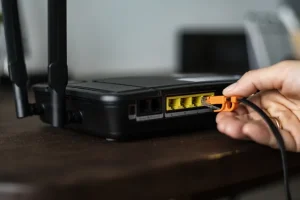New Calling Attempts Rules for Debt Collectors
New contact rules issued by the Consumer Financial Protection Bureau (CFPB) under the Federal Debt Collection Practices Act (FDCPA) go into effect on November 30, 2021. The rules, which were released last October, impact all forms of communication with debtors and others via calls, text messages, social media messages, and email.
Who is covered by this rule?
The FDCPA generally applies to third-party debt collectors who regularly collect debts owed to another. However, the rules also apply to creditors collecting their own debts if the creditor uses a different name that suggests a third party is collecting the debts.
What modes of communication are covered by the CFPB’s call attempts rule?
The types of calls impacted by this rule include voice calls, voice messages, and ringless voicemails. Text messages, emails, and social media messages are exempt from the attempts rule but have separate opt-out requirements.
It’s important to note that while the attempts provisions only apply to telephone calls, if the cumulative effect of multiple communication strategies is found to harass, oppress, or abuse any person in connection with the collection of the debt, this could still be considered a violation of the FDCPA.
What is the new call attempts rule?
Under the new rule, a debt collector is presumed to comply with the FDCPA’s prohibition against repeatedly calling or speaking with a person with the intent to abuse, harass, or annoy if:
- The debt collector limits their call attempts to seven attempts within a seven-day period, and
- The debt collector only engages the person in a telephone conversation once within a seven-day period. (The date of the conversation is considered the first day of the seven-day period.)
Are there any types of calls that are excluded from the attempts rule?
There are three primary exclusions from the new attempts rule.
First, calls placed with the person’s prior consent are excluded so long as the call was placed within seven days of receiving the consent. However, under the rules, this consent could expire earlier if:
- The person consented to a shorter period of time.
- The person revokes their consent.
- The debt collector has a telephone conversation with the person regarding their debt.
Second, calls that do not connect to the dialed number. For instance, if the debt collector gets a busy signal or a message that the number is not in service.
Third, calls placed to professional persons, including the consumer’s attorney, a consumer reporting agency, the creditor (or their attorney), and the debt collector’s attorney are also excluded.
Additionally, commentary for the rule states that wrong number contact does not count toward the attempts to communicate. For instance, if a collector attempts to reach a consumer at a particular number but learns that the number no longer belongs to the consumer, this will not count as an attempt.
Debt collectors should review their policies and procedures to ensure that their communications strategies continue to be compliant under the new rules. Particular attention should be paid to implementing technological solutions to prevent more than the allowable call attempts in a seven-day period and to capturing and expiring consent to be called.
Please reach out to us at connect@compliancepoint.com if you have any questions about this topic or how CompliancePoint can assist your organization with managing marketing compliance.
Finding a credible expert with the appropriate background, expertise, and credentials can be difficult. CompliancePoint is here to help.





